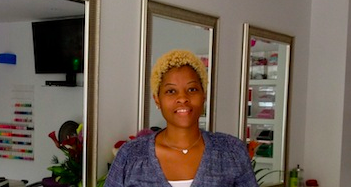Proud Preschoolers Graduate from the League Education & Treatment Center

[SlideDeck2 id=3133 ress=1]
With more spirit and verve than pomp and circumstance, the League Education & Treatment Center celebrated its preschool Graduation and Moving Up Day on Friday, Aug. 9. The League Center, a local certified non-profit organization dedicated to serving children and adults with behavioral and psychiatric disorders, held a ceremony and reception to honor the preschool class.
The graduates received their diplomas dressed in miniature caps and gowns, and performed a song and dance for their proud friends and family. For parents, the graduation was an opportunity to reflect on how far their children, who come to the League Center with a range of academic, behavioral, social and therapeutic needs, have progressed in their time there. At the League Center, children with developmental and behavioral disorders receive specialized treatment and highly personalized education – including art, music, literacy, and dance therapy and social skills training – that can help them transition to other schools in the community.
Kalypso, 5, one of this year’s graduating preschoolers, made particularly impressive progress at the League Center, according to her psychologist and treatment coordinator Martha Herman. When Kalypso enrolled in the League Center preschool in 2011, she was withdrawn and tested with an IQ in the disabled range, Herman said. At the League Center, Kalypso worked with professional staff, including a speech therapist and pyschotherapist, and Herman helped her through social skills training, play therapy, music therapy and other expressive therapies. After two years, Herman said, Kalypso’s IQ is now above average for her age, and she is sociable and outgoing. She will enroll in a New York City charter school in the fall.
“When Kalypso got into the League we were so happy,” said her mother, Ann-Marie Numez. “Kalypso was withdrawn when she was younger. She stayed mostly to herself, she wouldn’t play with her peers when she was around them – but she smiles a lot now, she definitely talks a lot. It’s amazing to see her so excited.”
Herman noted that when Kalypso first arrived at the League Center, she used to throw furious tantrums. “Now, if she gets upset she still might pout or say something, but she doesn’t erupt like she did before,” said Herman. “Her language level kept getting higher and higher. And when she could verbalize what she felt and wanted, she didn’t have to throw any tantrums.”
At the graduation ceremony, Kalypso was bursting with excitement. She sang and danced energetically, hugged her family members and fellow graduates, and posed for photos. “I feel happy!” she said. Her favorite part of the ceremony, she said, was singing.
Some unexpected guests also happened to stop by on graduation day: Jonan and Jonathan Hampton-Walton, twin brothers and alumni of the League Center, came to the school with their mother to visit their old teachers. When they enrolled in the League Center at the age of 4, the two boys had been diagnosed with pervasive development disorder on the autism spectrum; now they’re 20 years old and attend Thomas Nelson Community College. They hadn’t known in advance that it was graduation day at the League Center, but seeing the effervescent crowd of graduating preschoolers and their families, as well as some of the teachers who nurtured them during their time at the school, made the twins reflect on their own experience there.
“The teachers are here are so special,” said Jonathan Hampton-Walton. “They really were like parents. And I met some of my closest friends here.” As the twins greeted and took photos with some of their former teachers and administrators, they added to the atmosphere of pride and excitement that permeated the League Center building on graduation day.
When the League Center was founded over 60 years ago, it was the first day treatment center and school in the United States to offer an alternative to institutionalization for children with developmental and psychiatric disabilities, including autism. According to the League Center’s public relations department, today more than 40% of League Center students come from foster homes, and many children live in at-risk or under-served communities in and around Brooklyn. As a 501(c)(3) certified non profit organization, the center receives public funding and depends on grants and private donations to enrich and expand its services. You can visit the League Center website to learn more.




